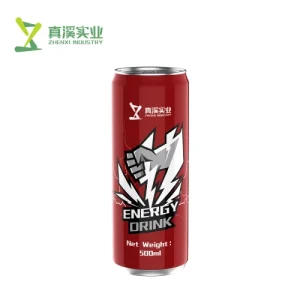Energy drinks Energy drinks maintain their stimulative vim through primarily the dual action of caffeine and sugar, plus other stuff. The primary ingredient in this case is caffeine, which has a major impact on alertness. The energy drink is typically 80 milligrams of caffeine per 8-ounce serving, the same as in a regular cup of coffee. Many studies have shown that this amount of caffeine improves mental performance and reduces fatigue through the blockade of adenosine receptors in your brain.
Another essential ingredient has a crucial role in sugar formation. If you have, on average an energy drink will consist of around 27 grams per serving. This means that it is quickly absorbed into the bloodstream and cells can use for energy in glucose. Because its fast metabolic rate gives a serious energy boost to your brain and body it is widely used by athletes, as well college students in preparing for exams.
Taurine, an amino acid also present in energy drinks account for their stimulant properties as well. Cardiovascular health is improved and muscle contractions are supported by taurine. Research has demonstrated that taurine heightens sports performance w caffeine and possibly endurance. One example is published in the Journal Of Strength And Conditioning Research that showed adding taurine led to a 1.7% faster run time [2].

Energy drinks are also high in B vitamins which you need for energy metabolism. B6 and B12 for example, help your body to turn the food into energy. A number of energy drinks include B vitamins—magnesium and potassium, but a lack in these two could contribute to fatigue or decreased performance. It is significant to mention regarding famous energy drink, Red Bull that it has large quantity of these vitamins which are the reason why most people use this product.
Although energy drinks have been worth their weight in gold regarding the positive aspects, they probably began to grab negative attention due to health related concerns. Too much sugar can mean increased calorie consumption, which leads to weight gain and too many synthetic ingredients that are loaded with calories. Consuming excess caffeine on the other hand has been known to lead users into feeling jittery, giving them a faster heart rate or making it hard for some people get sufficient sleep. Overconsumption of added sugars has been associated in some cases with life-threatening risk for cardiovascular events. The recommended daily allowance of caffeine is 400 milligrams according to The American Heart Association, so always in moderation.
Negative media attention in the past few years exposed energy drinks aimed at young adults as well as athletes. They are attracted to the concept of higher cognitive functionality. Still, the American Academy of Pediatrics has warned against any energy drink consumption by children and adolescents because they can mess with developing cardiovascular or nervous systems.
In general terms, energy drinks elevate your sugar level and brain activity with the combination of caffeine, taurine and B vitamins. Still, despite all this puzzled information, they may be useful for the short period as long taken carefully to prevent health implications. This is a very informative post for anyone looking for the Best Energy Drinks as it covers both pros and cons in detail. For extra information on these products please search for energy drink.